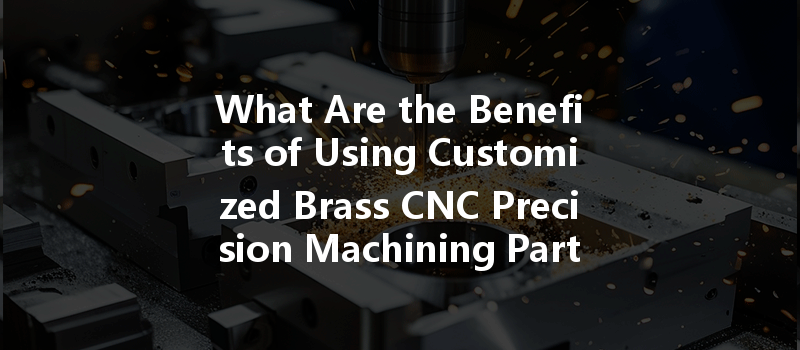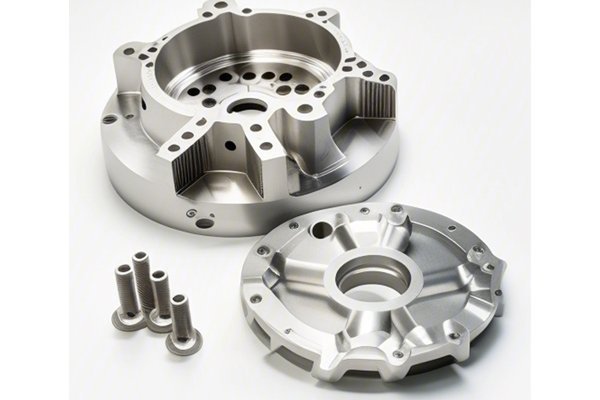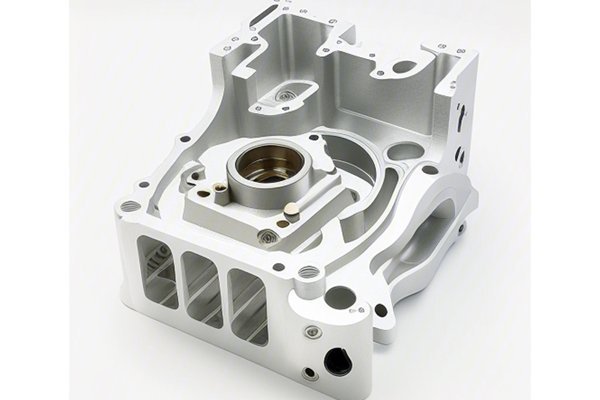Did you know that the global CNC machining market size was valued at approximately $63 billion in 2020 and is projected to reach over $100 billion by 2027? That remarkable growth highlights the increasing reliance on precision manufacturing processes in a variety of industries. In particular, customized brass CNC precision machining parts are carving a niche, playing an essential role in everything from automotive to medical devices. But what makes these components so vital, and how can they benefit your projects?
In this extensive blog post, we’ll delve into the world of customized brass CNC precision machining. We’ll explore its benefits, applications, and the detailed processes involved, providing you with a comprehensive understanding of why this technology is game-changing in modern manufacturing.
Understanding CNC Machining and Its Importance
Before we explore customized brass machining specifically, let’s take a closer look at what CNC (Computer Numerical Control) machining entails. CNC machining is a manufacturing process where pre-programmed computer software dictates the movement of factory tools and machinery. This technology can automate processes including drilling, milling, and turning, resulting in higher precision and speed.
Why CNC Machining?
Now, when we narrow this down to brass, a material widely recognized for its properties, the benefits become even more specific.
The Advantages of Customized Brass CNC Precision Machining Parts
Brass is an alloy of copper and zinc, and it’s often chosen for precision machined parts for several compelling reasons:
Brass is one of the easiest materials to machine. Its physical properties allow for precise cuts and minimal tool wear. This results in lower manufacturing costs and reduced lead times, making it the go-to choice for many projects requiring customized components.
Brass offers excellent resistance to corrosion, making it suitable for parts exposed to different environmental conditions. This attribute is particularly beneficial in the automotive and plumbing industries, where components may come in contact with moisture or chemicals.
The conductive properties of brass make it ideal for applications involving electrical connections and thermal expansion. This is particularly critical in industries such as electronics, where heat dissipation can directly affect performance.
Brass has a distinctive golden hue. Its aesthetic qualities are often preferred in products where visibility is key, such as architectural fittings, hardware, and decorative objects.
Customized brass components offer a good balance of strength and workability. This means they can withstand various mechanical stresses while still being easy to manipulate.
Applications of Customized Brass CNC Machining Parts
Brass CNC machined parts are used across various sectors:
| Automotive Industry
Brass is used in various automotive components, such as fittings, valves, and connectors. The lightweight nature and corrosion resistance make brass an attractive choice in areas that don’t require high strength.
| Aerospace
In the aerospace sector, customized brass parts play vital roles in systems that require reliability in extreme conditions, especially in electrical applications.
| Medical Sector
Brass components are increasingly found in medical devices and equipment due to their excellent machinability, strength, and resistance to bacteria. For instance, housing valves and fittings that require precise functioning can be effectively manufactured from brass.
| Plumbing
Brass is a traditional choice for plumbing fittings due to its anti-corrosive properties. Customized brass CNC precision machining can fabricate specialized sizes and shapes essential for modern plumbing systems.
| Electronics
From connectors to housings, brass is widely used in electronic components, leveraging its conductive properties.
The Process of Customized Brass CNC Machining
The details of the part are established during the design phase. Using Computer-Aided Design (CAD) software, engineers develop a precise blueprint, accounting for every facet of the product—tolerances, features, and dimensions.
Next, engineers convert the CAD designs into CNC programs. These codes dictate the movements of the CNC machinery, guiding every cut, drill, and turn to produce the final product accurately.
For customized brass parts, the right type of brass alloy is selected based on the application requirements. For example, leaded brass might be chosen for its machinability, while dezincification-resistant brass may be more suitable for plumbing applications.

Once the CNC program is set and materials are ready, the actual machining process begins. This step can involve multiple processes such as milling, turning, and drilling, often executed in a single setup for efficiency.
After the machining process, parts typically undergo further finishing processes. These may include polishing, coating, or plating, depending on the project specifications.
Quality control is crucial in the CNC machining process. Every part undergoes comprehensive inspection and testing to ensure it meets predetermined specifications and industry standards.
Finally, once all parts are verified, they are prepared for delivery. Timely delivery is often critical in project management, and efficient scheduling helps meet customer requirements effectively.
Challenges in Customized Brass CNC Machining
Despite its impressive advantages, challenges can arise in customized brass CNC machining.
Although brass is easier to machine, the right tools and parameters must be chosen. Incorrect speeds or feeds can lead to rapid tool wear or part inaccuracies.
While custom-made parts can be beneficial, they may involve higher upfront costs compared to mass-produced items. Companies must balance the benefits of customization with budget constraints.
For customers with tight deadlines, the lead time for customized CNC machining can be perceived as a drawback, especially if the design requires multiple iterations.
Challenges experienced during the initial fabrication may necessitate rework or adjustments, impacting turnaround times.
Solutions to Overcome Challenges
To effectively manage these challenges, companies can adopt several strategies:
Investing in high-quality cutting tools and continuously monitoring tool performance can mitigate tool wear and improve outcomes.
Employing lean principles can help streamline production, reduce waste, and ultimately make the process more cost-efficient.
Maintain transparent communication with clients regarding timelines and capabilities. This fosters trust and allows for realistic expectations.
Using advanced software and technologies improves accuracy and efficiency throughout the machining process. Technologies like 3D printing, for rapid prototyping, can complement CNC machining.
The Future of Customized Brass CNC Precision Machining
As industries continue to evolve, so too will the techniques and technologies surrounding CNC machining.
As automation technology improves, integrating robotic systems with CNC machines will enhance production flexibility and reduce lead times.
Manufacturers are being driven to create more sustainable processes. Brass recycling and reduced waste will become increasingly pivotal in operations.
Advancements in material science will unlock new brass alloys, enhancing properties like durability, conductivity, and resistance.
Enhanced software capabilities will allow more complex processing, greater accuracy, and reduced labor input in CNC programming.
: Why Customized Brass CNC Precision Machining is Worth Your Attention
Customized brass CNC precision machining parts are at the forefront of technological advancement in manufacturing. From superior machinability and corrosion resistance to their widespread application across various industries, these components play a crucial role in meeting modern demands.
As we’ve explored, understanding the machining process—from the design phase to delivery—is vital for those looking to integrate customized brass parts into their projects. By tackling the challenges associated with precision machining and embracing the evolving future of technology, manufacturers can optimize their operations and outcomes.
In a world that continues to emphasize the importance of efficiency, precision, and adaptability, paying attention to the benefits of customized brass CNC precision machining is increasingly essential. Engaging with these advancements can lead not only to better product performance but also to a stronger competitive edge in the marketplace.
By investing in customized brass components, you secure not just parts but a pathway to innovation, quality, and elevated craftsmanship. As industries demand greater precision, the importance of understanding and employing these techniques will undeniably only escalate. So, whether you are an engineer, a designer, or a business owner, considering how customized brass CNC machining can enhance your products is a conversation worth having.






